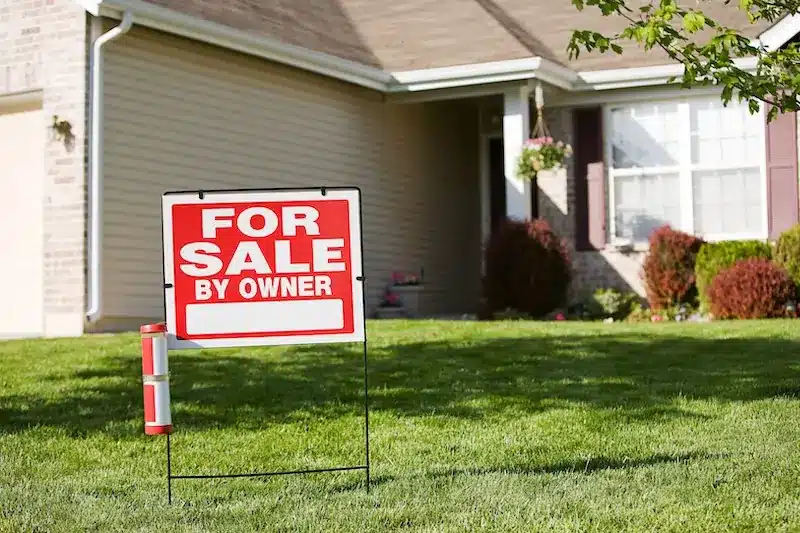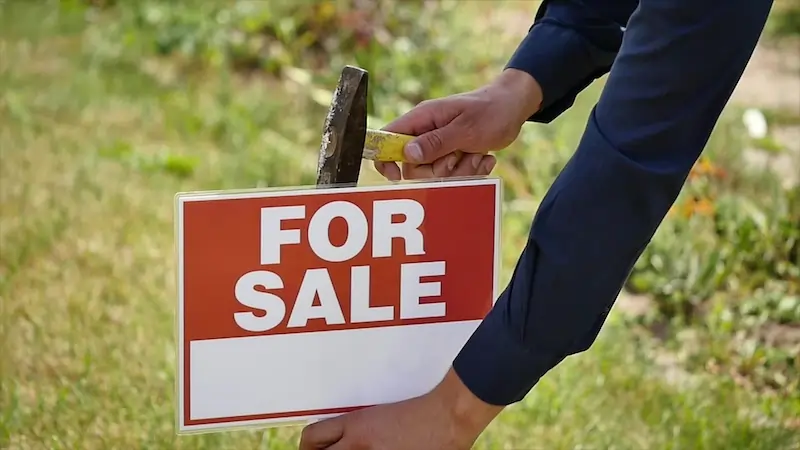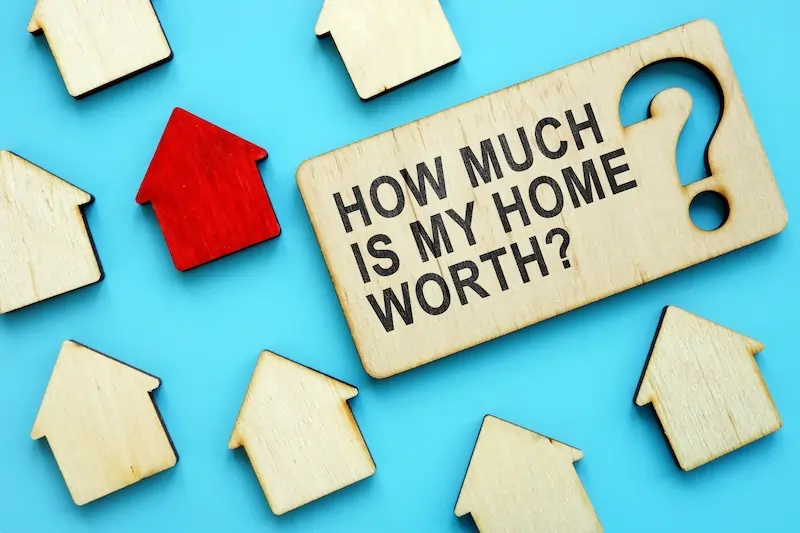Can I Sell My House Without A Realtor In Tennessee?
Are you planning to enter the housing market to sell your home in Tennessee? Looking to sell your house fast without following the route of involving a real estate agent? Perhaps you should consider bypassing the process and sell a house without a realtor in Tennessee. This approach, often known as For Sale By Owner or FSBO homes, comes with some benefits;
- Savings on Realtor Commissions: One of the most appealing perks is the savings on commission fees typically paid to real estate agents.
- Complete Control Over the Selling Process: You have control during negotiations. Decide when to schedule showings and when you’re available.
- Direct Communication with Buyers: This can lead to smoother transactions and eliminate any misunderstandings that may occur through intermediaries.
However, FSBO sellers might need to negotiate with a buyer’s agent, who represents the buyer and may pose negotiation challenges, including discussions about commissions and potential concessions.
Undoubtedly, going solo demands effort and a solid grasp of the real estate market. Worry not! We’ve got your back. In this guide, we’ll walk you through each stage of selling your property without a realtor. From preparing your home for sale and determining a price, to effectively promoting it and finalizing the deal – we cover it all.
Stick around absorb these tips and enhance your confidence in selling a house without a realtor like an expert. Let’s get started!
Understanding the FSBO Process
What is a For Sale By Owner (FSBO) sale?
A For Sale By Owner (FSBO) sale is a real estate transaction where the homeowner takes on the role of the real estate agent, handling all aspects of the sale themselves. This means you, as the homeowner, are responsible for everything from setting the right price and marketing your property to negotiating with potential buyers and finalizing the sale.
Opting for an FSBO sale can be a cost-effective way to sell your home, as it allows you to avoid the typical 4-6% commission fee charged by real estate agents. However, it’s important to note that this approach requires a significant amount of time, effort, and a good understanding of the real estate market. You’ll need to be prepared to manage all the tasks that a real estate agent would normally handle, which can be both challenging and rewarding.
Benefits and Drawbacks
Pros of selling a house without a realtor
Selling a house without a realtor can offer several appealing benefits:
- Saving on commission fees: One of the most significant advantages is the potential to save thousands of dollars in commission fees that would otherwise go to a real estate agent.
- Control over the sale process: As an FSBO seller, you have complete control over every aspect of the sale, from setting the price to negotiating with potential buyers. This means you can make decisions that best suit your needs and timeline.
- Flexibility: Without a real estate agent, you can show your property at any time that is convenient for you, making it easier to accommodate interested buyers.
- Personal touch: Selling your home yourself allows you to add a personal touch to the process, which can be appealing to potential buyers. You can share your personal experiences and insights about the property and the neighborhood, creating a more engaging and authentic experience for buyers.
Cons of selling a house without a realtor
However, selling a house without a realtor also comes with its own set of challenges:
- Lack of expertise: Real estate agents bring a wealth of knowledge and experience to the table. As an FSBO seller, you may not have the same level of expertise, which can lead to mistakes and missed opportunities.
- Time-consuming: Managing all aspects of the sale process can be incredibly time-consuming and stressful. From marketing your property to handling negotiations and paperwork, the responsibilities can quickly add up.
- Limited exposure: Properties listed with a real estate agent often receive more exposure through the Multiple Listing Service (MLS) and other marketing channels. Without this level of exposure, it can be harder to attract potential buyers.
- Liability: As an FSBO seller, you are responsible for all aspects of the sale, including any mistakes or errors that occur. This can lead to potential legal and financial liabilities if issues arise during the process.
While selling a house without a realtor can be a cost-effective option, it’s not always the best choice for every homeowner. If you’re not experienced in real estate or don’t have the time and resources to handle all aspects of the sale process, it may be worth considering hiring a real estate agent to assist with the sale.

Understanding the Process of Selling A House Without a Realtor In Tennessee
Embarking on the journey of selling your house without a real estate agent, commonly referred to as “For Sale By Owner” or FSBO, involves understanding the steps of selling your house. Let’s explore the stages that you as an FSBO seller will need to go through.
1. House Preparation: Getting Your House Ready for Sale
Preparing your FSBO property for sale entails enhancing its curb appeal and staging it effectively to make it more appealing to buyers.
2. Pricing: Setting the Right Price
By utilizing information about your local housing market and analyzing data from sales, you’ll establish a price that will attract potential buyers’ interest. Setting a price that reflects the fair market value is crucial to ensure you attract serious buyers and secure a competitive offer.
3. Marketing and Advertising: Reaching Out to Potential Buyers
To draw in buyers you’ll require a marketing strategy. This includes creating engaging listings and utilizing social media platforms to showcase your property. Additionally, using a Tennessee flat fee MLS company can help expand the visibility of your property to potential buyers by listing it on the multiple listing service (MLS) for a nominal fee.
4. Showing Your House: Creating a Positive Impression
During this stage, you’ll arrange open houses and private showings to allow interested buyers to physically see your property. The goal is to create a welcoming atmosphere that helps them imagine themselves living there.
5. Negotiating Offers & Closing the Deal: Getting the Best Deal
Upon receiving offers from buyers, it’s vital to grasp the details of purchase agreements and handle negotiations thoughtfully. Understanding the purchase and sale agreement is crucial during negotiations, as it helps manage legal complexities and ensures clear communication with potential buyers. Managing closing expenses is also key to ensuring a smooth transaction.
6. Handling the Closing Process: Finalizing the Sale
This step involves working with the buyer’s lender making sure all required documentation is in order and setting a date for the closing. It’s essential to scrutinize all paperwork, including the settlement statement for accuracy.
7. Post-Sale Responsibilities: Tie Up Loose Ends
Once the sale is finalized, there are a few loose ends that require attention. This includes transferring utility accounts to the new owner, discontinuing homeowners insurance coverage, and informing parties of your change of address.
Legal Aspects In Tennessee Of Selling Your House Without A Realtor
Selling a house on your own or For Sale By Owner, can get pretty tricky when it comes to the legal side of things. It’s essential to follow all the laws and rules – from filling out disclosure forms to dealing with home inspections – and also keep in mind zoning regulations or HOA guidelines if they apply.
Knowing these obligations, for selling a house on your own is crucial to avoid errors or delays during the selling process. In Tennessee for example, sellers must disclose any property issues to buyers using a residential property disclosure statement. A real estate attorney can assist in drafting contracts and ensuring compliance with local laws, providing significant peace of mind regarding the legal complexities involved.
Moreover, it’s important to make sure your home meets all building codes and safety standards; failing to comply could result in disagreements, penalties, or even the sale falling through. If needed it’s advisable to seek guidance to ensure you’re meeting all the requirements. Hiring real estate attorneys can be cost-effective compared to agent commissions, offering valuable expertise in navigating the home selling process.
By understanding the procedures and legal aspects of selling a house you’ll be well equipped to handle each stage effectively.

Steps For How To Sell A House Without A Realtor In Tennessee
Selling your house without a real estate agent doesn’t have to be overwhelming. Check out the steps for how to sell a house without a realtor.
Step 1: Preparing Your House for Sale
The idea of selling a house without a realtor may seem intimidating. Let’s simplify it. The first step is to get your house ready for the market. Why is this crucial? A well-prepared house can attract potential buyers and potentially increase the selling price. Let’s explore how you can accomplish that.
Home Repairs
First and foremost attend to any home repairs. This includes fixing faucets and repairing any wall damage. Remember, prospective buyers are looking for a home that won’t require repairs upon purchase.
Staging
Next, consider staging your home. This involves arranging furniture and decor to showcase your home’s features and help potential buyers imagine themselves living there. You can hire a stager or follow these tips if you prefer to do it yourself;
- Keep it neutral: Use subtle colors and simple decor to appeal to various preferences.
- Depersonalize: Remove personal items like family photos or quirky collectibles.
- Highlight strengths: Do you have a fireplace? Highlight it as one of the standout features.
- Keep it clean: Ensure your place is tidy and catches the eye.
Curb Appeal
Now that the interior of your home is looking sharp let’s shift our focus to the exterior. Improving your curb appeal can create a lasting impression, on buyers as they arrive at your property. Here are some straightforward ways to boost curb appeal:
- Landscaping: Keep the lawn tidy, trim bushes, and plant flowers. Make sure your yard looks well-maintained and welcoming.
- Exterior maintenance: Notice any paint chips or missing roof tiles? Address these issues before putting your home on the market.
- Front door: Often overlooked, painting your door can give a new look to the entire exterior of your house.
Decluttering
Lastly decluttering is key! Buyers should have a view of your home’s features without distractions. Additionally, a clutter-free house can seem spacious.
- Start with obvious areas: Clear off kitchen counters, bathroom surfaces, and coffee tables.
- Don’t forget hidden spots: Buyers will peek into closets and cabinets. Make sure they are organized.
Take your time with this stage. Getting your home ready to sell may require some work, but it’s an investment that can lead to a faster sale and a higher selling price.

Step 2: Pricing Your House Right to Attract Buyers
When you’re selling your home without a real estate agent, one of the decisions revolves around pricing strategies. It’s important to find a balance; if the price is set high it could deter buyers; if it’s too low you might end up undervaluing your property.
Factors to Consider When Pricing Your House
When setting the list price, take into account these factors:
- Location: Properties in sought-after neighborhoods typically fetch higher prices.
- Condition: A well-maintained house tends to attract a higher price tag.
- Market Trends: Determine whether your market is currently a buyer’s or seller’s market.
- Time of Year: Real estate dynamics can vary based on the time of year.
Using Comparable Sales To Determine Your Home’s Value
A way to gauge market value is by analyzing sales, also known as “comps.” These are sales of properties in your area with similar characteristics, offering insights into what buyers are willing to pay for homes like yours.
Here’s how to use comps:
- Identify properties resembling yours in size, age, condition, and location that have been sold within the last three months.
- Compare the selling prices of these properties.
- Adjust your price based on any significant differences between your property and the “comps”.
Keep in mind it’s not an exact science. Looking at comparable properties gives you a rough estimate.
Appraisals Add Another Layer of Precision
Getting an appraisal for your home can provide an unbiased evaluation of its value. An appraisal involves an opinion on the worth of your property, taking into account factors such as the age, size, condition, and any renovations done to the house.
A real estate professional can provide a more accurate appraisal through comparative market analyses (CMAs) and broker price opinions (BPOs). Even if you’re not working with a real estate agent, having an appraisal done can help FSBO (For Sale By Owner) sellers confidently defend their asking price to buyers.

Step 3: Marketing and Advertising Strategies for Maximum Exposure
Selling your house as a For Sale By Owner (FSBO) requires a complete marketing strategy. The key is to reach an audience and attract as many potential buyers as possible. Selling FSBO can lead to higher profits by eliminating real estate agent commissions, but it also means handling all aspects of the sale independently, including creating personalized sale agreements, managing paperwork, and addressing potential safety concerns. Here’s how you can boost visibility and create interest to sell your home quickly and effectively.
Create Eye-Catching Online Listings
First impressions are crucial in this real estate market. When crafting listings make sure to:
- Use high-quality photos that showcase your home’s features.
- Write clear engaging descriptions that highlight what makes your property unique.
- Include details like footage, neighborhood information, and any recent upgrades.
Since many buyers start their search online having a listing can greatly impact their interest.
Utilize Virtual Tours
In today’s era, virtual tours provide a way for buyers to explore a property without physically visiting it. They allow buyers to;
- Walk through your home at their pace.
- Experience the layout and space more realistically.
- Engage with your property, on a deeper level compared to just viewing photos alone.
By providing tours you can attract buyers from out of town and those who prefer a contactless initial viewing.
Leverage Social Media Marketing
Social media marketing helps expand your reach. Platforms like Facebook, Instagram, and Pinterest are tools for showcasing your home because:
- They have audiences actively seeking visual content.
- You can target demographics in your local market and beyond.
- Interesting posts can be easily shared, increasing word-of-mouth exposure.
Create posts that narrate the experience of living in your home and use hashtags strategically to draw interest.
With these tactics in action you’ll be well positioned to appeal to a range of buyers. A blend of an presence and smart social media usage taps into the effectiveness of contemporary marketing techniques to greatly benefit FSBO sellers.
Pay To Have Your Property Put On The Multiple Listing Service (MLS)
An essential part of this process is ensuring that your property receives visibility. This is where the Multiple Listing Service (MLS) plays a role. The MLS serves as a database utilized by real estate agents and the National Association of Realtors to locate homes for their clients. When you pay to have your property listed on the MLS you connect with a range of buyers boosting visibility, for your home significantly.
To get your property on the MLS you’ll need to use a Flat Fee MLS service. These services provide a cost option for listing your property on the MLS without the suite of services offered by a realtor. For a one time payment your home will be listed on the MLS. Other prominent real estate websites. The fee varies depending on where you’re located and the package you select typically costing less than a traditional real estate commission.
When choosing a Flat Fee MLS service, look for one with
- Look for one with a good reputation that operates in your area.
- Read reviews. Check Facebook, Google, and Angie’s list.
- Compare different packages to find the best match for your requirements.
- Ensure that the package includes services such as listing your property with photos providing a yard sign and offering support, for paperwork and negotiations.
Keep in mind, that while listing on the MLS enhances exposure, it does not handle all aspects of selling your home. Even though there is technically a listing agent involved you will still need to take care of tasks like staging your home organizing showings negotiating with buyers and managing the closing process. Make sure you’re ready to handle these duties or think about getting help from experts such as a real estate lawyer or a staging advisor.
Investing in getting your property showcased on the MLS is a part of the FSBO journey. It connects your property with a range of buyers greatly boosting your likelihood of making a sale successfully.

Step 4: Showing Your House to Potential Buyers
When it comes time to display your home to buyers and their agents ,how you present it can greatly influence their perception. Setting up a welcoming ambiance not only showcases your home’s features, but also helps guests feel at ease and excited about the possibilities.
Organizing Successful Open Houses
Here are some tips for hosting successful open houses:
- Schedule Strategically: Pick a date and time that will attract the most visitors, such as weekends or early evenings.
- Promote Effectively: Utilize online listings and social media to spread the word about your open house dates.
- Signage Counts: Place signs strategically in the neighborhood to direct buyers to your property.
Conducting Private Showings
Apart from houses you might need to arrange private showings for interested buyers who cannot make it to the scheduled events. Here’s how you can make these individual visits special:
- Flexibility is Key: Be open to adjusting your schedule for showings.
- Personalized Experience: Use these one-on-one tours as an opportunity to answer questions about the home and share what makes living special.
Tips for Creating a Welcoming Atmosphere During Property Visits
Whether its a house or a private tour here are some ways to ensure guests feel at home:
- First Impressions Matter: Ensure the entrance is tidy, organized, and inviting.
- Spotless Space: Thoroughly clean each room with extra attention to kitchens and bathrooms.
- Set the Stage: Arrange furniture and decorations to highlight each room’s features.
- Brighten Up: Let in as much natural light as possible and turn on lights to create a warm atmosphere.
- Neutralize Odors: Eliminate any odors by airing out the home and using air fresheners.
- Provide Information: Have printed materials available with important details about the home.
- Security Measures: Keep valuable items out of sight during showings for added peace of mind.
By focusing on these aspects you can create experiences for buyers and improve your chances of selling your home to the right buyer.
Step 5: Negotiating Offers and Closing the Deal
Moving into negotiation is a step when selling your property without a realtor. Understanding sales agreements and employing negotiation tactics can play a role, in achieving a sale that aligns with your expectations.
Understanding Purchase Agreements
A sales agreement is a document between you and the buyer that outlines the terms of the transaction. It covers specifics such as:
- Sale Price: The agreed-upon amount for the property.
- Contingencies: Conditions that must be met for the sale to go through, like home inspections or financing.
- Closing Date: When the sale is final and ownership transfers.
- Inclusions and Exclusions: What items are staying with the home and what will be taken out.
Being knowledgeable about these aspects can assist in communication and prevent issues during negotiations. If you’re uncertain about sales contracts, seeking assistance from a real estate lawyer would be advisable.
Navigating the Negotiation Process
Having solid negotiation tactics is crucial when evaluating offers. Understanding buyer’s preferences and being adaptable can simplify this phase.
Here are some tips for handling negotiations:
- Respond quickly to offers so interested buyers don’t lose interest.
- Think about all parts of an offer, not just the price—sometimes there are other things that can be good for you too.
- Be ready to make a counteroffer if you need to, but also be willing to give in on some things.
When talking with buyers and their agents be sure to highlight the aspects of your home such as its location, recent upgrades, or unique amenities. This can help validate your asking price and terms during discussions.
Managing Closing Costs
Closing costs typically constitute a portion of the expenses involved in selling a property. Home sellers might need to cover;
- Title insurance fees
- Transfer taxes
- Lawyer fees (if you need one)
- Recording fees
- Buyer-side agent commissions
- Property taxes
To handle closing costs well:
- List out all the costs you expect early on so you’re not surprised later.
- Decide which costs you’ll pay and which ones the buyer will have to cover—this can also be something you talk about during negotiations.
- Think about offering to pay part of the closing costs as an incentive for buyers—that might make your property more attractive compared to others on the market.
By being transparent and well-prepared during negotiations you set yourself up for a successful sale. By considering every detail—from sales agreements to closing costs—you’ll be equipped to complete your home sale.

Step 6: Handling the Closing Process with Ease
When you’re getting ready to close the sale of your house it’s important to handle the process with attention to detail and care. The closing phase finalizes the transfer of ownership to the buyer. It’s crucial to be well-informed about each step.
Title Research and Title Reports
One key part of the closing process is conducting title research. This ensures that there are no liens, disputes, or legal issues affecting the property title that could impact the sale.
- Start by doing a title search to uncover any issues that need addressing before closing.
- Obtain a title report, which provides a complete background check on your property’s history.
- Take steps to resolve any title problems identified which might involve clearing liens or settling disputes.
Understanding Loan Documents
If your buyer is using financing for their purchase understanding loan documents will play a role in your closing process.
- Familiarize yourself with common loan documents such as the mortgage agreement, promissory note, and deed of trust.
- Carefully review these documents for accuracy in terms and conditions to avoid any surprises at the last minute.
- Work closely with the buyer’s lender to ensure all financial documentation aligns correctly with the agreed-upon terms of sale.
Closing Day Checklist
On the day you sell your house it’s important to get everything to ensure a process.
- Make sure you know in advance where and when the closing will happen – typically at a lawyer’s office or a title company.
- Bring all necessary documents, including your ID, house keys, and any required seller disclosures.
- You’ll have to sign lots of documents so take your time to go through each one before signing.
- Prepare to handle any funds that need to be transferred on closing day; this might include paying off your mortgage balance or covering closing costs.
By taking care of these details you can approach the closing with confidence. The goal is not only to complete the sale but to do it openly and responsibly, giving peace of mind to both you and the buyer.
Risks, Mistakes, and When to Seek Professional Help
Selling a house without the help of a real estate agent can be quite challenging. It’s crucial to be aware of the risks associated with selling on your own and the mistakes that FSBO (For Sale By Owner) sellers often make. Here are some key pitfalls you should steer clear of:
1. Lack of Real Estate Knowledge
One of the hurdles is not having a grasp of the home selling process. This lack of understanding can result in mistakes related to pricing, marketing strategies, legal documentation and negotiation tactics. To mitigate this risk it’s advisable to delve into research and educate yourself about how real estate transactions work.
2. Pricing Issues
There’s a possibility that you may either set an asking price that’s too high or too low for your property. Setting a price could discourage buyers while undervaluing your home means you could be leaving money on the table. To avoid these pitfalls carefully assess sales data in your neighborhood. Consider seeking professional guidance through an appraisal.
3. Legal Troubles
Errors or omissions in paperwork can potentially lead to complications in the future. To steer clear of problems ensure you have an understanding of all legal prerequisites and documentation necessary for a successful home sale.
4. Time Management
The process of selling a house demands time investment. From preparing your property for listing promoting it to buyers conducting showings, and negotiating offers to overseeing the closing procedures. It almost feels like taking on a full-time job. Be ready, for this level of commitment.
While there are benefits, to going solo there are moments when its wise to consider getting expert assistance even if you don’t have a real estate agent:
- Real Estate Investors: Real estate investors, like Nexus Homebuyers, know the local market inside and out. They can give you an all-cash offer on your home, without the need to pay commissions.
- Title Companies: These entities play a role in ensuring transaction closures by verifying that the property title is free of any claims or obstacles.
- Home Inspectors: A thorough inspection by a professional can uncover issues with your property that might jeopardize your sale if left unaddressed.
Navigating the complexities of the real estate market can be challenging. By understanding pitfalls steering clear of errors and recognizing when professional guidance is necessary you can successfully sell your home without a realtor.
FAQs About Selling Your House Without a Realtor In Tennessee
Q: Can I legally sell my house in Tennessee without a realtor?
A: Yes! You are within your rights to sell your house in Tennessee without the assistance of a realtor. It is important however to familiarize yourself with the obligations associated with selling without a real estate agent in Tennessee to ensure compliance with state regulations.
Q: How do I determine the right price for my house?
A: Determining the price for your home involves a mix of art and science. Factors such as location, condition, market trends, and recent sales prices of homes in your local market should be taken into account. Utilizing tools like market analysis (CMA) can prove invaluable. Sometimes investing in an appraisal could provide added precision.
Q: What marketing strategies for FSBO sellers are most effective?
A: Implementing multiple marketing strategies can help broaden your exposure. Start by creating high-quality images and detailed descriptions for your listing on real estate platforms. Social media channels and local classifieds also serve as valuable tools. Additionally, do not underestimate the impact of word of mouth; informing friends and neighbors about your sale intentions can be beneficial.
Q: Should I hire a lawyer for the closing process?
A: Engaging a lawyer can offer advantages when navigating the complexities of the closing procedure. They make sure that all the legal paperwork is correct and that the transfer of ownership goes smoothly. While it’s not required, getting legal advice can help avoid any legal issues.
Just keep in mind selling your house on your own takes attention and thorough research. These guidelines offer a starting place. Each sale is different and might come with its own obstacles and advantages.
Conclusion
Let’s pause for a moment to explore the advantages of selling a house in Tennessee without a real estate agent. By choosing this path you have control over the process and the potential to save thousands of dollars in realtor fees. However, it’s crucial to be knowledgeable about the steps involved and be prepared for any obstacles.
This guide has equipped you with knowledge about:
- Preparing your house for sale to attract buyers
- Pricing your house accurately
- Marketing your house for maximum exposure
- Showing your house effectively
- Navigating negotiations and closing the deal
Armed with these strategies you’re well equipped to successfully sell your home.
Selling a House In Tennessee Without a Realtor: Unique Opportunities
Local real estate markets presents opportunities for homeowners who wish to sell their homes. The robust real estate market favors sellers enabling you to connect with buyers and transition, to your new residence.
Remember Nexus Homebuyers is available to offer support when needed. While we encourage the empowerment that comes from selling on your own we recognize that professional assistance may sometimes be required. Nexus Homebuyers consists of real estate experts who purchase properties regardless of their condition, and we buy houses in any condition.
Take that step forward confidently! Explore this guide to help you through the process of selling your house without a real estate agent. Best of luck on this thrilling adventure!





